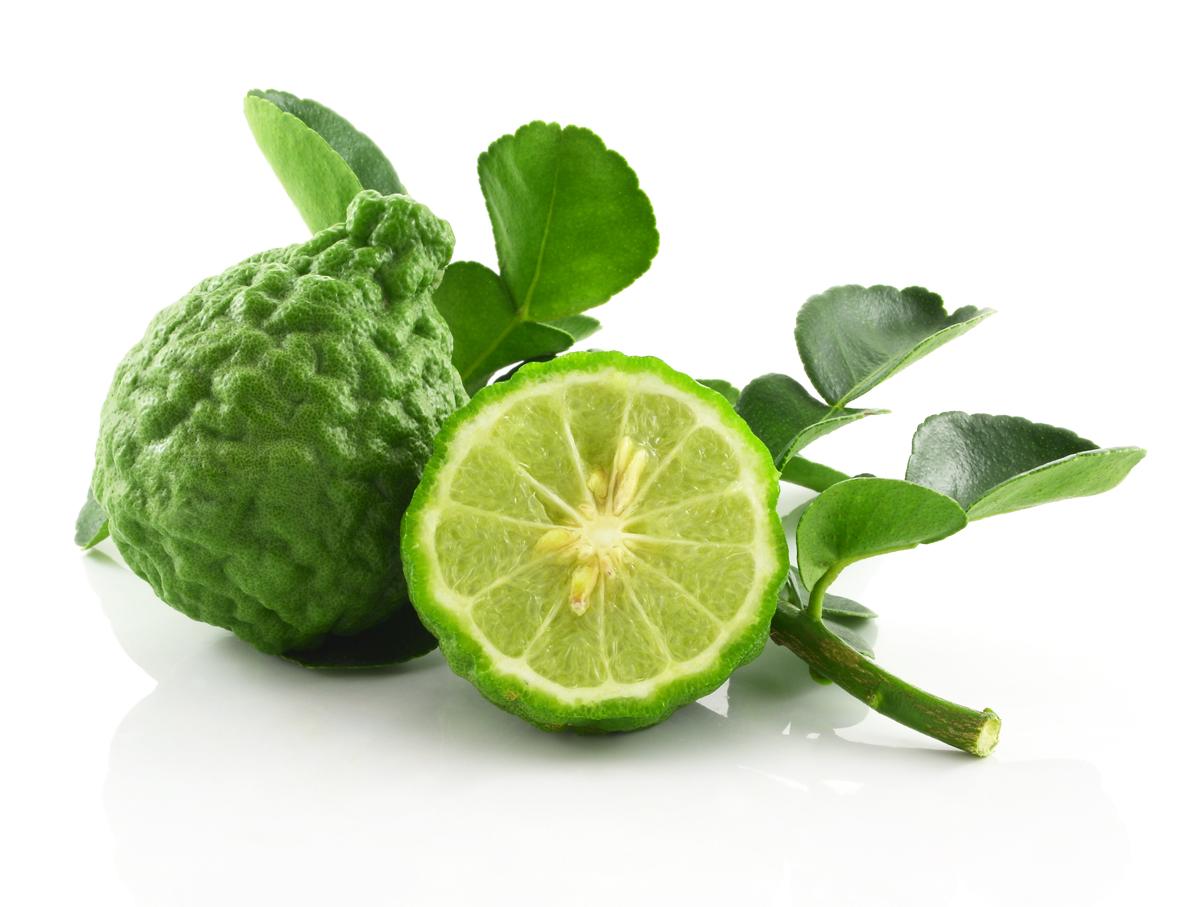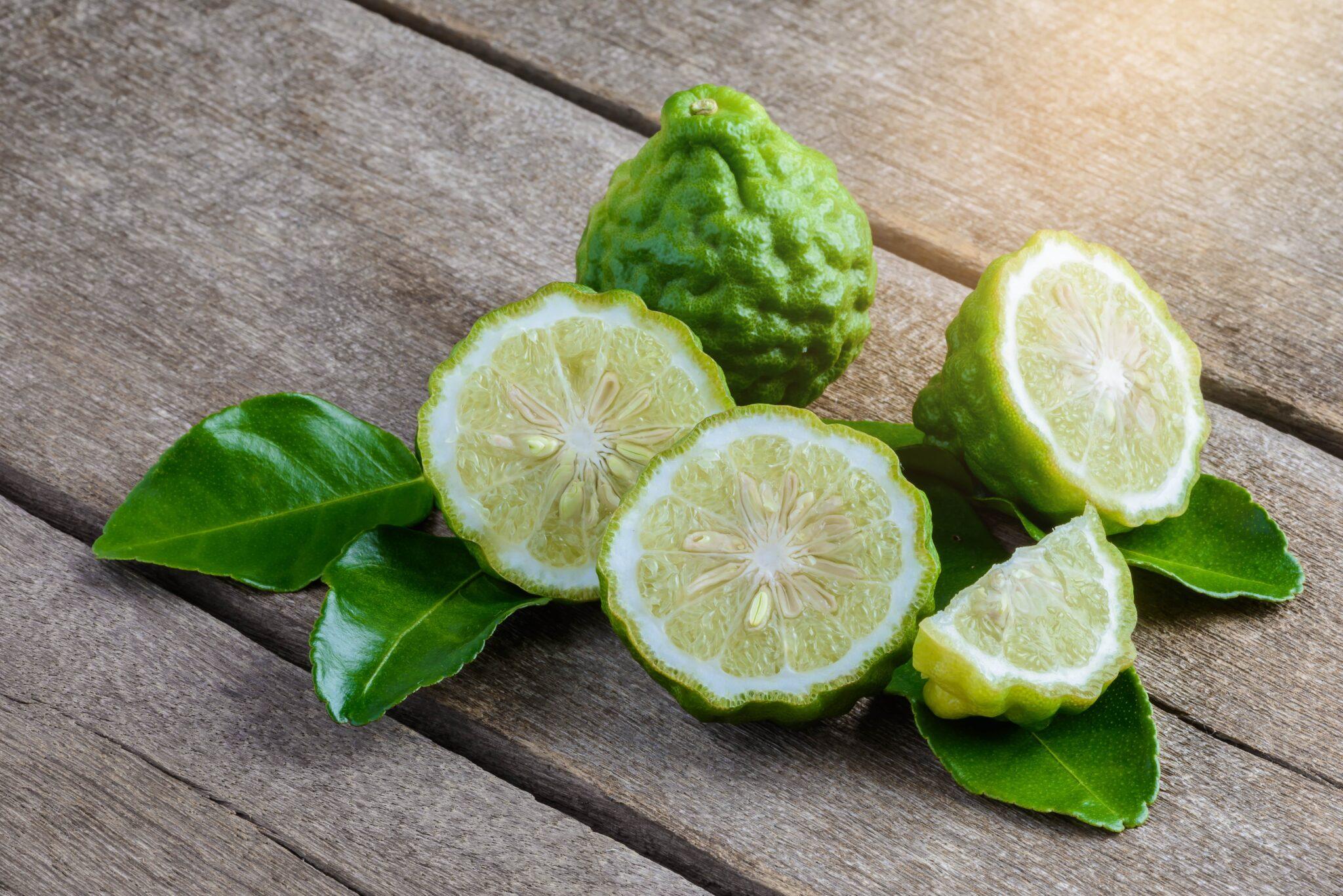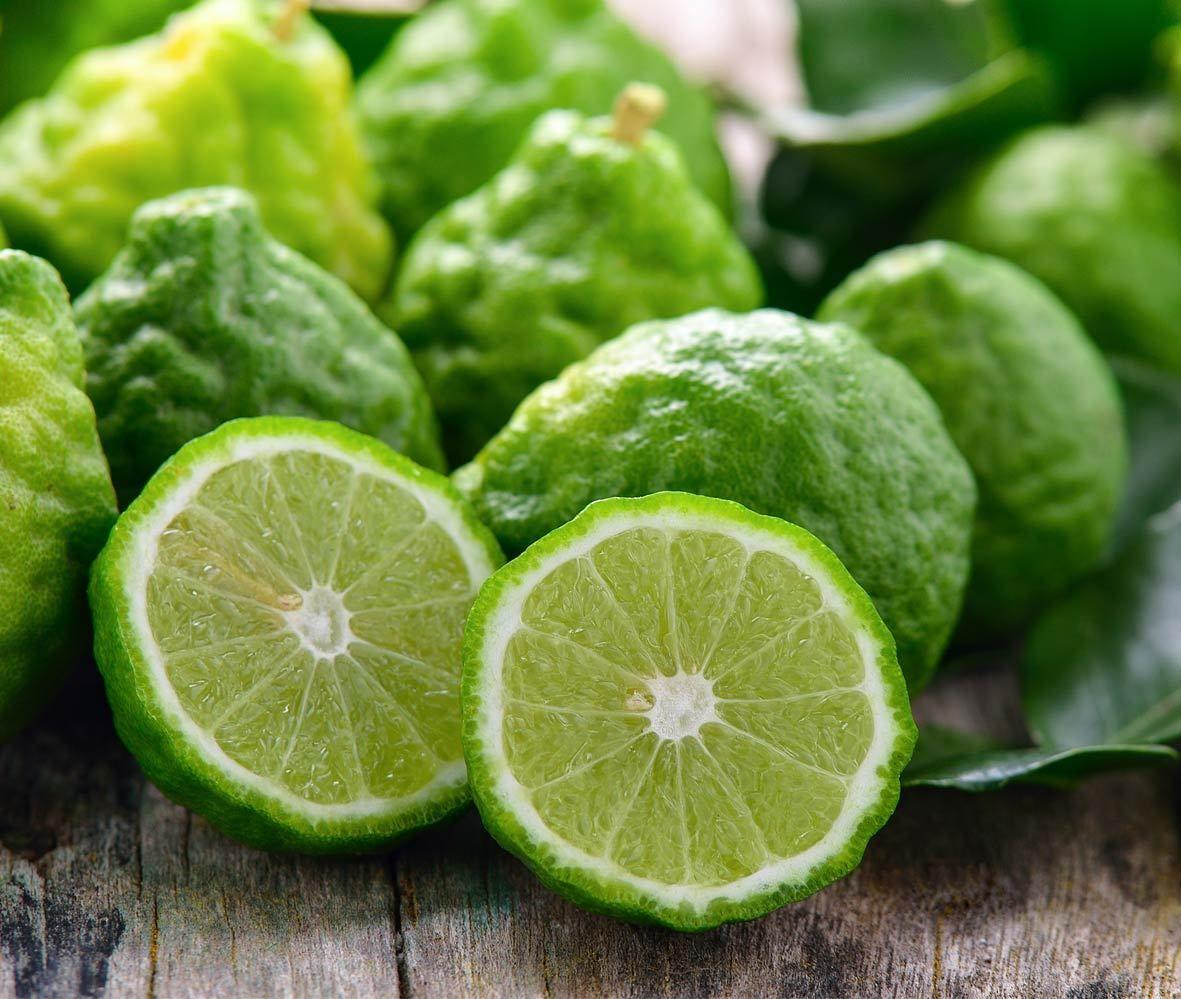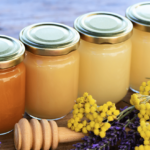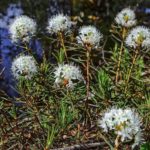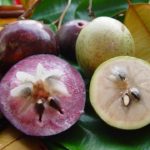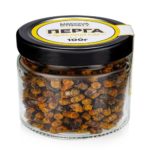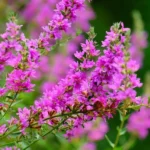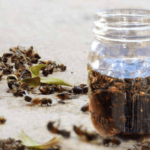Quite often people are interested in what kind of bergamot plant it is, as well as its description, properties and uses. This crop is a variety of orange from the Rutaceae family. It is impossible to find the plant in natural conditions, since it was bred by scientists. The fruits appeared due to the combination of citron and bitter orange. This plant originated in southeast Asia.
Description of the plant
The name of the culture is translated from Italian as “bergamotto”.The origin of this word is associated with the city of Bergamo, where this plant is grown. At the same time, many people are sure that this species of the Rutov family was obtained through selection in Ancient China. At the same time, there is a version that the culture was created as a result of natural mutation.
Appearance
This crop is an evergreen tree, the average height of which is 3-5 meters. The plant is characterized by thin long spines and shiny leaves of a bright green hue. Flowering begins in the first half of spring. At the same time, large flowers appear on the trees, which have a pronounced spicy aroma. Flowers can be white or purple.
The fruits are considered the most valuable part of the citrus tree. They vary in size and can be spherical or pear-shaped. When cut, the fruit resembles a lemon or lime. They are characterized by an unusual bitter taste, thick skin and dry pulp. Therefore, these fruits are rarely consumed fresh.
Is it possible to grow at home
Bergamot can be planted at home. To do this, you need to remove the seeds from the fruits and plant them in the ground. However, it is not recommended to dry the seeds, as this leads to a decrease in their germination.
A special substrate for citrus fruits is suitable for growing the crop. It is also permissible to use a mixture of humus and sand. Seeds need to be deepened into the soil 1 centimeter. The crop should be watered as the soil dries out. The appearance of sprouts should be expected in about a month. When 3 leaves appear on the stem, the bushes can be planted.
Beneficial features
Bergamot is a fairly healthy fruit that has antiseptic characteristics. It can be used as an antifungal, antiviral and bactericidal agent. The product also successfully relieves inflammation and has a sedative and antispasmodic effect.
Bergamot oil can be used for acute respiratory viral infections. It has pronounced antipyretic properties. For rhinitis and colds, the substance helps reduce temperature. In addition, it helps cleanse the sinuses and reduce inflammation of the nasopharynx.
In addition, bergamot strengthens the immune system against herpes. It helps cope with inflammation in the respiratory tract and diseases of the genitourinary organs. The oil helps normalize blood pressure and cholesterol levels in the blood. It can be used to combat vitiligo and baldness.
Bergamot is used to make various dietary supplements that can be used to strengthen the immune system and improve health. Tea with the addition of this component eliminates disturbances in the functioning of the digestive organs, improves appetite, and produces a disinfectant, antiviral and antiseptic effect. The drink is of great benefit in the development of inflammation and infections. In addition, the product has pronounced antifungal properties.
Bergamot essential oil helps normalize lymph flow and blood circulation in the skin. This substance helps regulate water-lipid balance. In addition, it has a toning and brightening effect on the dermis.
The composition can be used to prevent and eliminate skin inflammation. With its help, it is possible to get rid of rashes, narrow pores, and relieve irritation after insect bites. To cope with headaches and neck tension, you can massage with bergamot oil. It should be combined with grape seed and neroli oils. If you massage the abdomen with bergamot, you will be able to improve digestive functions and stimulate appetite. This is especially true during the recovery stage after complex pathologies.
The beneficial properties of bergamot allow it to be used to treat a variety of diseases:
- Bronchitis - in this case, it is recommended to rub the soles with a mixture of glycerin and petroleum jelly with the addition of a few drops of bergamot oil.
- Increased oiliness of hair - to combat this problem, you need to apply a few drops of oil to the teeth of a wooden comb and comb your hair in different directions. The substance can also be added to various hair masks that need to be done every other day. In addition, it is permissible to mix the product with shampoo or perform body wraps with the addition of olive oil.
- Nervous exhaustion - in this case, you need to take 3-4 drops of bergamot oil per 1 glass of warm boiled water. You also need to add 1 small spoon of honey to the mixture. You need to drink this drink 2 times a day for a week.
- Herpes - if signs of pathology appear, the product should be used to treat the inflamed area.
Bergamot is also actively used in cosmetology. In most cases, essential oil is used for this, which you can easily make yourself. To do this, just squeeze the fruit peel with your hands. As a result, you will be able to obtain a light emerald-colored liquid.The composition can be used for oily facial skin and hair. It copes well with inflammatory processes and normalizes the functioning of the sweat glands. In addition, essential oil successfully destroys parasites and fungal microorganisms.
Contraindications
Bergamot contains furocoumarins, which cause excessive pigmentation of the dermis. Therefore, the composition should not be used to treat sensitive skin, as it can cause burns - especially in the summer. Do not apply the substance to the skin less than 1 hour before going out into the sun.
Bergamot oil should not be used by people with allergies. It is also not recommended to drink tea with the addition of this product at night for people with sleep disorders. The fact is that such a drink has a pronounced tonic effect.
Chemical composition
Bergamot has a pleasant aroma because it contains linalyl acetate and linalool. As for the chemical composition of the product, it includes water, vitamins, carbohydrates, and minerals. The fruit also contains dietary fiber and small amounts of proteins and fats.
The main value is the furocoumarins contained in the fruits. These substances have a photosensitizing effect. They provide rapid skin pigmentation and help to obtain a beautiful and even tan. Bergamot peel contains valuable essential oils that are used in the perfume and cosmetics industry. Plant oil also includes many valuable components. Among them, it is worth highlighting limonene, bisabolene, bergapten, nerol and terpineol.
Where is bergamot used?
Bergamot fruits do not have very good taste. They are sourish-bitter. Therefore, this product is used quite rarely in cooking.However, in areas where bergamot grows, candied fruits and marmalade are made from it. In Greece, it is customary to make jam from the peel of the fruit. Bergamot is also often used to flavor various dishes, mousses, desserts, and sweets. It is often added to alcoholic drinks and cocktails.
Bergamot essential oil is often used in the confectionery industry. It is used as a flavoring agent for some types of tea. Butter is also often added to baked goods. This helps make its aroma much more expressive. In addition, a small amount of bergamot oil is added to salads - vegetable and fruit. In cooking, you should use your own prepared oil. To do this, you need to squeeze the fruit yourself.
Bergamot essential oil is also used in the following areas of human life:
- Production of gels, shampoos, detergents - the substance has a degreasing effect and does not damage surfaces.
- Alcohol industry - the component ensures the neutralization of toxic substances. It has tonic properties and reduces the likelihood of alcohol intoxication.
- Pharmacological industry - the composition is distinguished by its disinfecting effect. In addition, bergamot oil enhances the effect of certain medications.
- Perfumery - the component is used as a fragrance and has a pleasant citrus aroma.
- Making repellents – the substance helps repel insects.
Bergamot essential oil helps relieve stress and depression.To cope with increased anxiety, you can light a lamp with this substance. Before going to bed, you should take a bath with a few drops of bergamot oil. This will help relax the body and get rid of fatigue. A massage using this substance will also help relieve pain and tension.
Limonene, which is part of the product, improves the functioning of the digestive organs. Inhaling oil vapors helps with colds. This helps stimulate mucus discharge, destroy germs and make breathing easier. Bergamot oil is used to make creams, lotions and shampoos. It helps cleanse and disinfect the skin. This component also heals wounds and helps get rid of stretch marks. To repel insects and achieve a deodorizing effect in the room, it is worth treating window frames and doorways with bergamot oil.
Tea with bergamot
Today, several varieties of tea with the addition of bergamot are produced. At the same time, green varieties are considered not very popular. They include large amounts of caffeine, which neutralizes the beneficial properties of citrus. In addition, many people do not like the combination of green tea and bergamot.
Black tea has become more widespread. Earl Gray is considered the most famous variety. It was named after the British Earl Gray, who brought a unique drink to European countries.
Other meanings of the word
The word “bergamot” is used not only to designate a plant from the Rutaceae family. The term is also used for a variety of pear and grass.
Julienne
Bergamot is a fairly popular pear variety that comes in several varieties.Southern varieties have a sweeter taste and juiciness. Species that are grown in the middle zone are characterized by cold resistance and bear strong, small fruits.
Pear trees of this variety are of medium size, but some specimens reach a height of 25 meters. They are distinguished by a thick and spreading crown.
Grass
This plant is also called "monarda". The grass grows up to 1.5 meters and is distinguished by elongated leaves with serrated edges. The flowering of the crop continues all summer. Depending on the type of plant, it may have pink, red or lilac flowers.
Bergamot is a popular plant that belongs to the Rutaceae family and has many beneficial properties. This culture has found wide application in various spheres of human life. Moreover, it can easily be grown at home.

